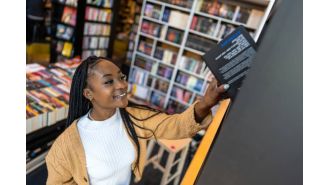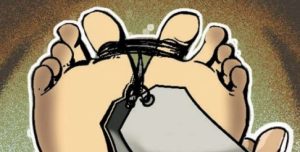His arm weakened, then he was gone in two years.
We didn't think it was a big deal.

Alan and I met on a blind date on June 14, 2006 and it was love at first sight. We were both divorced and had no children, but shared similar values and a love of golf, skiing, and hiking. We married eight years after our first date and our relationship was perfect.
However, on a holiday in September 2017, Alan mentioned that his right arm had been feeling weak for a couple of months. We weren't terribly concerned, but when we returned to the UK, he went to see a doctor. After further tests, we were told Alan had motor neurone disease (MND). MND is a progressive, degenerative neurological disease that attacks the motor neurones, which control movement. This means the muscles eventually stop working, leaving those with the disease unable to move, swallow, speak, and eventually breathe.
We were both devastated and Alan kept saying ‘this isn’t fair on you’ as he was aware I would be left as a young widow. We were only in our early sixties and had expected to grow old together. Despite the sadness of the diagnosis, we knew we had to make the most of the time we had left. We organised our wills and lasting power of attorney, made changes to the house to accommodate Alan’s wheelchair, and we went on holiday.
By the end of 2018, Alan had lost the use of his arms and legs, needed a ventilator to breathe, and was completely dependent on me and the care professionals for his every need. I resigned from my job and was also the principal carer for my mother, who had vascular dementia. Marie Curie was a godsend and provided us with an occupational therapist and physiotherapist to help source the equipment we needed to keep Alan at home.
Our home was transformed into a hospital with hoists, a hospital bed, a ventilator machine, and a special shower chair. We kept up a social life as best we could, but increasingly people would come to visit us rather than us going out. Alan was still able to communicate, but as the disease progressed it became harder. I started keeping a journal and a notebook with details of phone calls and meetings with professionals to help me offload and keep track of the situation.
I was now Alan’s carer rather than his wife and began to feel increasingly alone. Marie Curie recognised I was suffering from anticipatory grief and helped me make sense of my feelings. It was Alan’s occupational therapist who first suggested I write a book. In December 2018, Alan became seriously ill with pneumonia and after some time in hospital and the hospice, he came home in February. We were determined to make the most of the time we had left together.
Alan and I met on a blind date on June 14, 2006 and we both knew within a few dates that we were soulmates. We shared a love of golf, skiing and hiking, and had similar values. We married exactly eight years after our first date and our relationship was perfect.
Little did we know, our life was about to take a dramatic turn. While on holiday in September 2017, Alan mentioned his right arm had been feeling weak for a month or two. We thought nothing of it and returned to the UK. After consulting with a neurologist and undergoing various tests, we were told Alan had motor neurone disease (MND). MND is a progressive, degenerative neurological disease for which there is no cure. It was a shock to us both, and Alan kept saying ‘this isn’t fair on you’ because he was aware I was going to have to look after him as the disease progressed.
We needed to get organised on a practical front. We booked holidays, sorted out wills, set up a lasting power of attorney, and made changes to the house so Alan could live downstairs. As the disease progressed, Alan lost the use of his arms and legs, needed a non-invasive ventilator to help him breathe, and was using a wheelchair. I resigned from my job because I could not cope with Alan’s care and my mum’s care, who had vascular dementia.
We tried to make the most of the time we had left together. We went on holiday and made memories, but Alan eventually needed a tube in his tummy to aid feeding and was dependent on both me and care professionals 24 hours a day for his every need. We connected with Marie Curie West Midlands Hospice in Solihull, who provided us with an occupational therapist and physiotherapist to help source the equipment we needed to keep Alan at home for as long as possible.
I started keeping a journal to offload and wrote down the events of the day as well as my thoughts. I also kept a notebook containing details of phone calls and meetings with every health and social care professional. I withdrew as Alan’s carer and I started to feel increasingly alone. Marie Curie stepped in and said I was suffering with anticipatory grief, something I’d never heard of before. It made sense of my feelings of sadness, anxiety and pending doom.
When Alan was ill with pneumonia in December 2018, we both thought he might die. After some time in hospital and a hospice, he came home in February. It was Alan’s occupational therapist who first suggested I write a book, which I did, to help me cope with the grief of losing Alan.
1 Views










